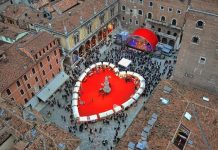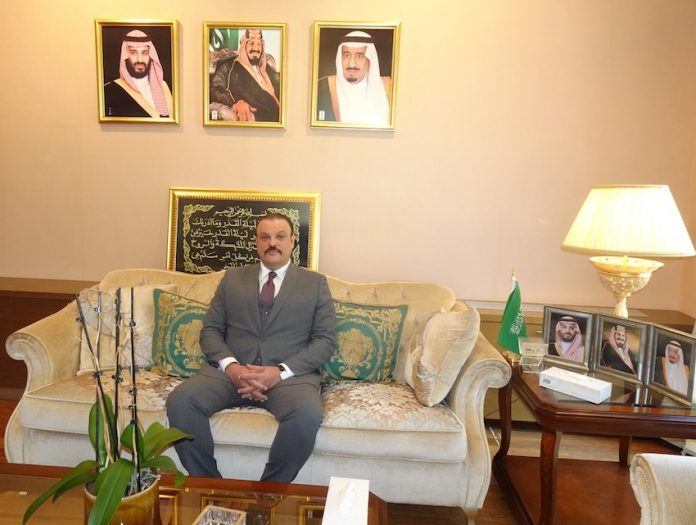“Diplomatic channels remain a powerful tool for promoting peace and stability in the world”
Edited by Anna Popper
Your Excellency, what impressions and experiences have You gathered in Budapest since presenting Your credentials as Ambassador of the Kingdom of Saudi Arabia to Hungary on 5 May 2024? Have You had any contact with Hungary before?
– It has been a wonderful start in Budapest, a city with a rich history and abundant heritage that captivates you from the very first moments. I was warmly welcomed by the local community and all government officials I met, most recently by Deputy Prime Minister, H.E. Dr. Zsolt Semjén.
During this short period, I have witnessed fruitful cooperation with the Hungarian government on many important issues of mutual interest. My meetings with government officials have been highly positive and will contribute to expanding the horizons of collaboration between our two countries in numerous and new fields. Unfortunately, this is my first time interacting with Hungarian officials. However, it has been an incredible experience, as I found that when you meet them, they leave the impression that you’ve been friends for a long time. They are characterized by honesty and transparency and hold great respect for my country and its leadership.
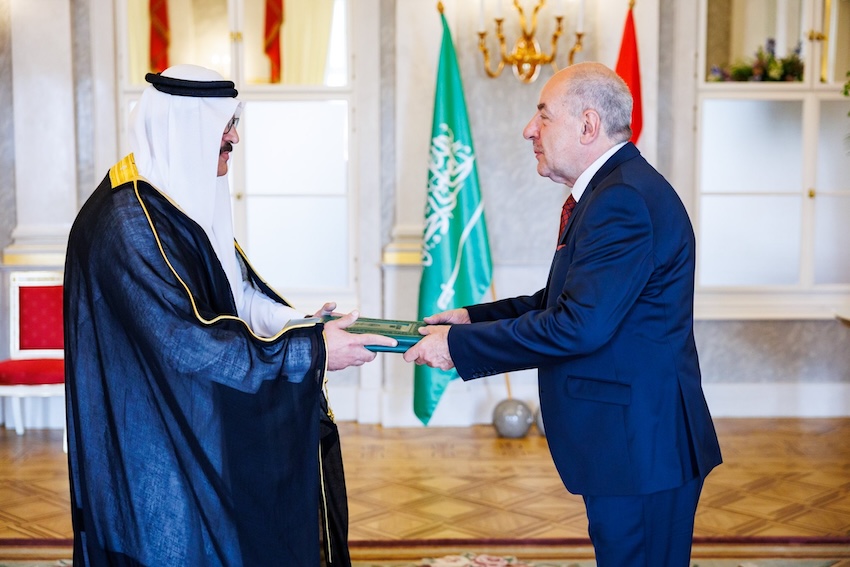
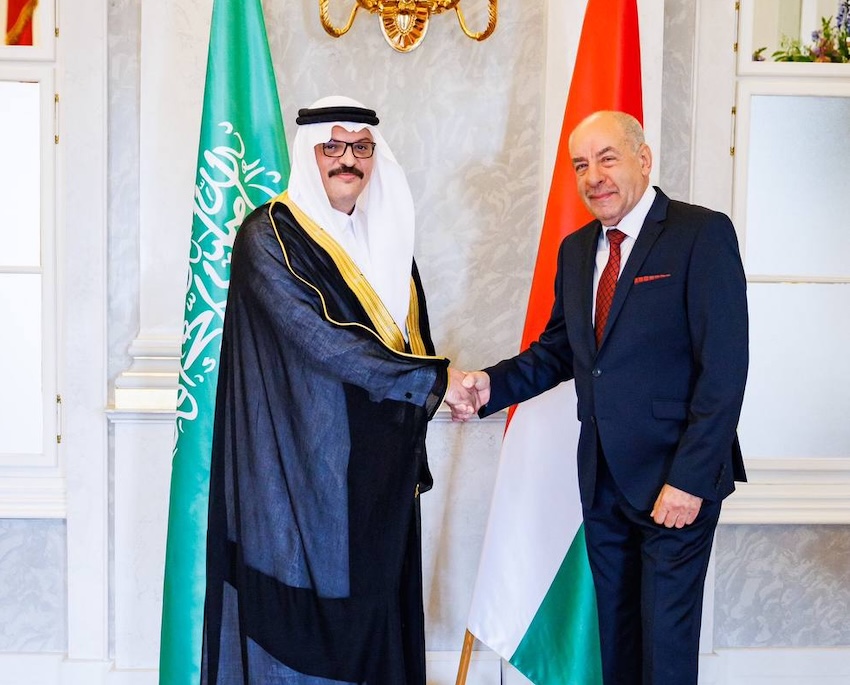
What goals and priorities did You set upon Your appointment as Ambassador to Hungary?
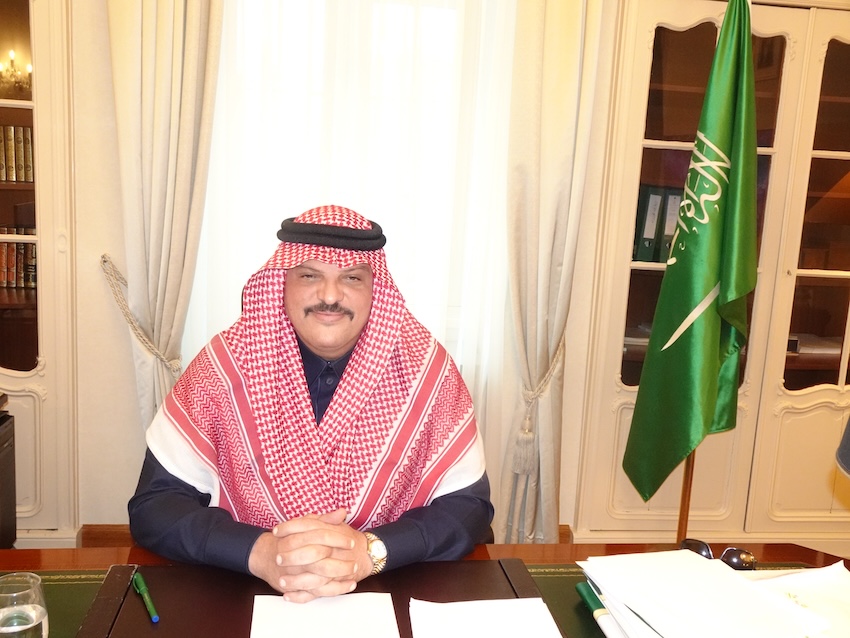
– The goals of newly appointed ambassadors vary depending on the tasks and responsibilities assigned to them. However, there are some fundamental objectives I aim to achieve during my tenure as the Ambassador of the Custodian of the Two Holy Mosques to Hungary.
The most important ones include: Enhancing bilateral relations between the two countries and working to develop them in all fields. Protecting and safeguarding the interests of Saudi citizens and providing support and assistance to them. Promoting investment and trade by encouraging mutual investment and boosting trade exchange between the two countries. Cooperation on international issues, including security, counterterrorism, human rights, and environmental concerns. Strengthening cultural and artistic cooperation between the two countries through cultural events and exhibitions.
How do You evaluate the relations in various fields between the Kingdom of Saudi Arabia and Hungary in light of the upcoming 30th anniversary of our diplomatic relations in 2025?
– Political and diplomatic relations between the two countries are continuously developing. The Hungarian Minister of Foreign Affairs and Trade has held fruitful meetings with officials in Saudi Arabia, emphasizing the importance of cooperation in all areas. There is ongoing parliamentary collaboration through the parliamentary friendship committees, which aim to strengthen bilateral relations and expand the scope of cooperation across various fields.
I would like to highlight the 4th Session of the Saudi-Hungarian Joint Committee, hosted in Riyadh on 14-15 May 2024. Additionally, both sides agreed to hold the second round of political consultations between the foreign ministries of the two countries, expected to take place in the first half of 2025. Overall, Saudi-Hungarian relations are moving towards greater cooperation and integration in multiple sectors.
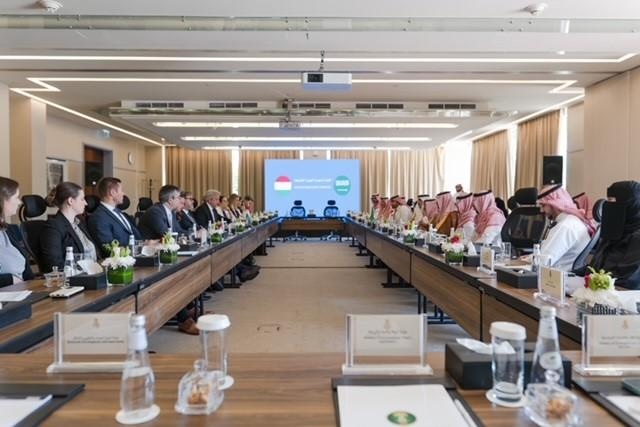
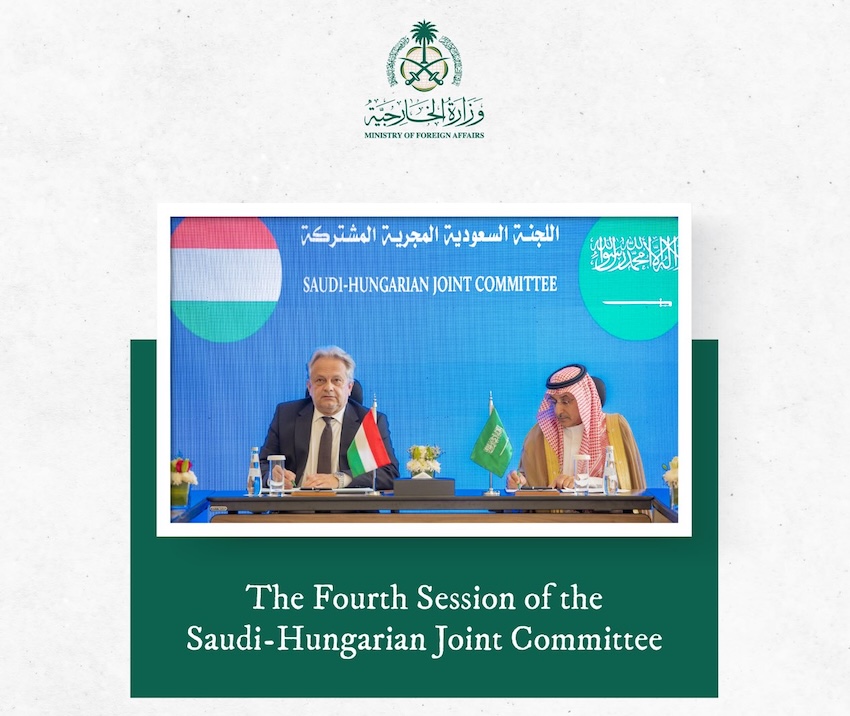

In which areas do You see potential and opportunities to enhance and deepen economic and trade cooperation between our two countries?
– Deepening economic and trade cooperation between Hungary and Saudi Arabia requires fostering a continuous dialogue between relevant institutions. This can be achieved through the following areas, opportunities and possibilities:
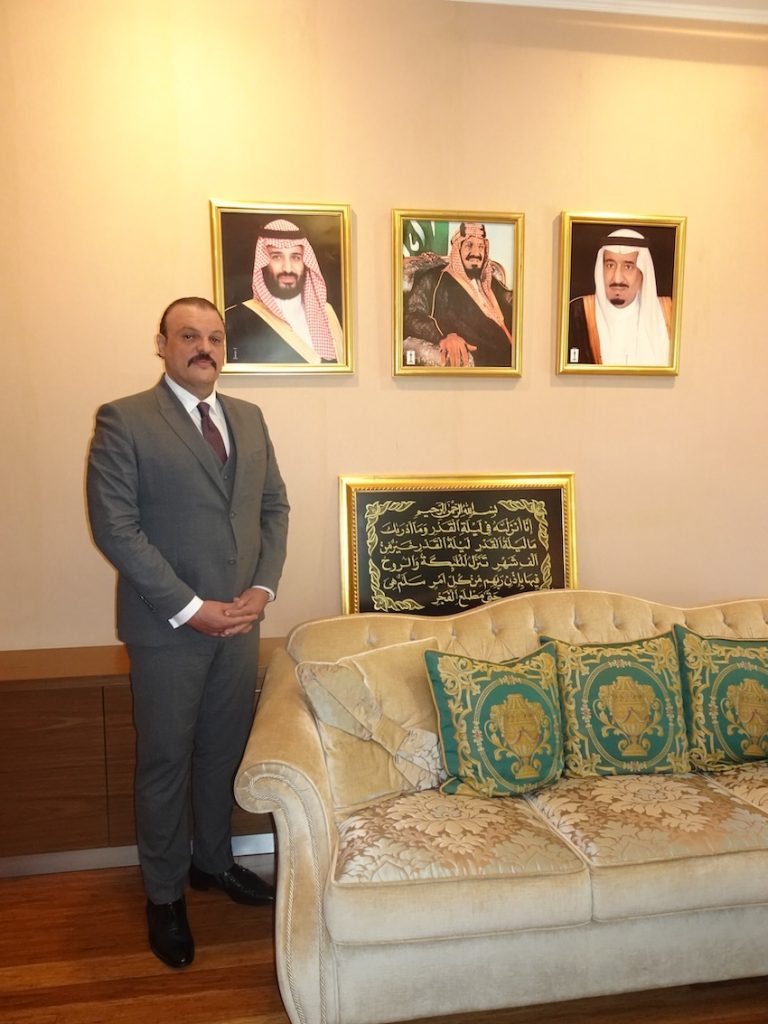
Joint Investments and Manufacturing industries: Infrastructure Development – Hungarian investments in Saudi infrastructure projects, particularly those aligned with Saudi Vision 2030.
Technology and Innovation: Research and Development – collaborative R&D projects to drive innovation in the industrial and medical fields.
Agriculture and Food Industries: Sustainable Agriculture – exchange expertise and technology in sustainable farming practices and enhance agricultural productivity, Food Industry – invest in food manufacturing and develop joint food production initiatives.
Renewable Energy: Hungarian investments in solar and wind energy projects in Saudi Arabia and leverage Saudi expertise in the renewable energy sector.
Healthcare and Pharmaceuticals: Medical Technology – collaborate on developing new medical technologies and improving healthcare services, Pharmaceutical Industry – establish joint ventures in the production and development of pharmaceuticals.
Education and Training: Educational Programs – exchange of students and researchers between universities and educational institutions in both countries, Vocational Training – organise joint vocational training programs to enhance skills and competencies.
Tourism: Tourism Promotion – cooperation in promoting tourism between the two countries and organising joint tourism events, Tourism Infrastructure Development – undertake mutual investments in tourism infrastructure projects.
Trade: Exports Diversification – enhancing bilateral trade by diversifying exported and imported products between the two countries, Trade Agreements – signing new trade agreements to enhance the ease of trade exchanges and reduce customs tariffs.
Can You provide an overview of recent developments in Saudi Arabia in terms of societal changes and cultural initiatives, particularly concerning the openness to tourism and hosting global sports events?
– Since the launch of Saudi Vision 2030 on 25 April 2016, by His Royal Highness Prince Mohammed bin Salman bin Abdulaziz Al Saud, Crown Prince and Prime Minister, under the guidance of the Custodian of the Two Holy Mosques, King Salman bin Abdulaziz Al Saud – may God protect them – Saudi Arabia has experienced unprecedented historic transformation and remarkable growth, supporting the Vision’s goal of building a prosperous and sustainable future through economic growth and enhancing the quality of life.
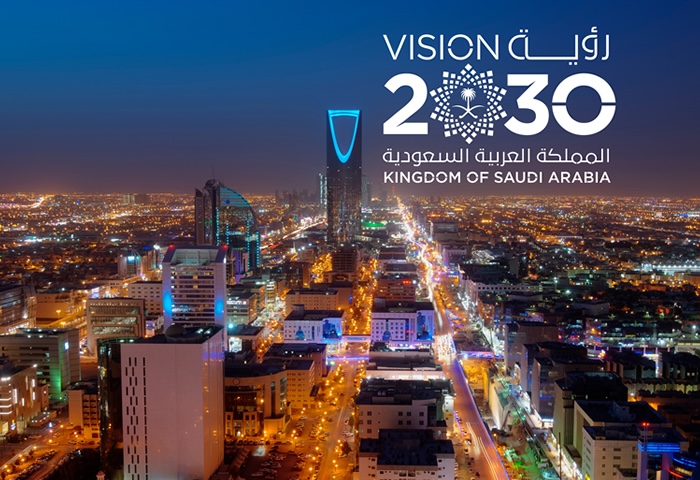
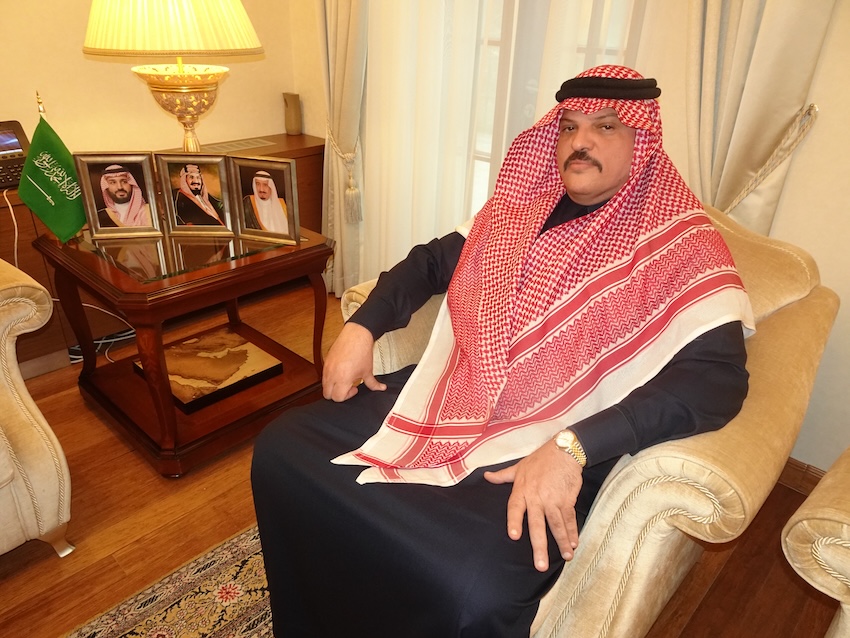
Empowering women and engaging the youth as one of the key priorities of the vision has contributed to building a balanced society that increases productivity and innovation to achieve a sustainable future. Saudi Arabia has transformed itself into a more diverse and inclusive society, with citizens’ contributions to volunteer work and charitable initiatives doubling amidst the spirit of compassion and giving in society. As the youth constitute a large percentage of Saudi society, this provides many opportunities for them and leads to accelerating the development process of citizens, residents and visitors. Saudi Arabia hosts major entertainment, artistic and sports events, making it a global entertainment destination.
Official statistics show that the Kingdom has achieved many of its goals in its quest to improve the quality of life. For example, the average life expectancy increased to 78.10 years, the percentage of population groups covered by health services exceeded the 2023 target by 96.41%, and the percentage of adults who play sports has also increased and is now estimated at 62.3%.
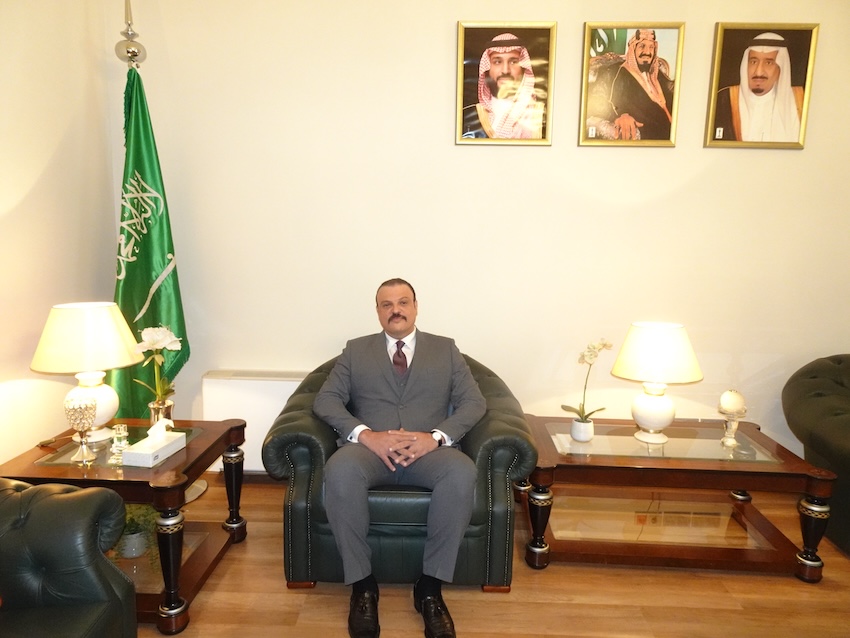
Saudi Arabia has also become one of the most important and promising tourist destinations that attracts tourists from all over the world. In 2023, it topped the UN list for the growth of international tourists, welcoming over 100 million domestic and international visitors in the same year. The Kingdom aims to welcome even more tourists from around the world. The Kingdom has also expanded its investments in entertainment, making it more accessible to the public and visitors to the Kingdom, encompassing various fields such as sports, arts, natural and historical sites, as well as cinema, theatre, music and technology. These efforts reflect profound changes in social culture.

The cultural domain is considered one of the most active areas where development and changes are taking place, as the Kingdom makes great efforts to support the cultural movement and encourage creativity, as part of the goal of providing opportunities for everyone to participate in cultural events. Its capital, Riyadh, was chosen by the international community to host the 2030 World Expo.
In addition, a major milestone was the inauguration of the “Riyadh Metro” with six lines and 84 stations, one of the largest public transport projects in the Kingdom. This project aims to improve transportation infrastructure in Riyadh, offering a modern and sustainable transport system for residents and visitors alike.
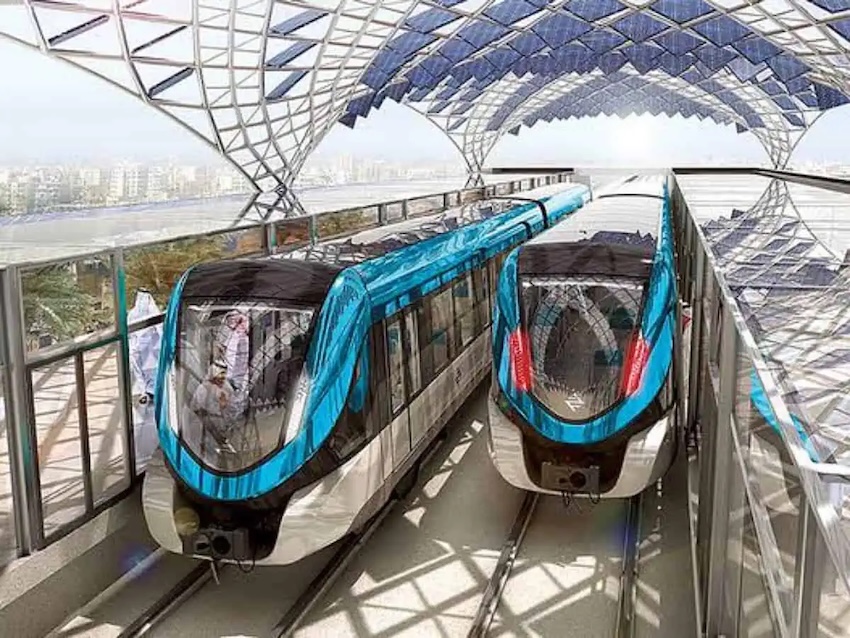
The year 2024 marks the midpoint toward achieving the goals and ambitions of Saudi Arabia’s Vision 2030. In the Kingdom, we recognize the importance of the sports sector in driving further growth and development. We look forward to hosting the AFC Asian Cup in 2027, the Asian Winter Games in 2029, and an exceptional and unprecedented edition of the FIFA World Cup in 2034, featuring 48 teams for the first time hosted by a single country. This will be achieved by leveraging our resources and capabilities to delight football fans worldwide and provide a diverse tourism, cultural and sports experience, rooted in a rich and remarkable historical heritage.
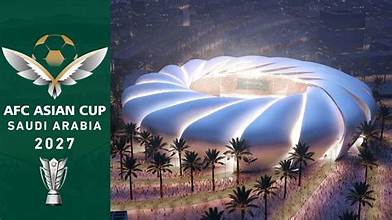
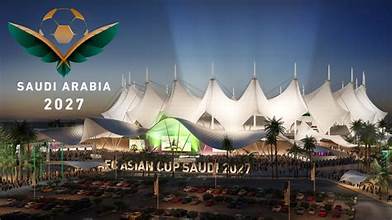
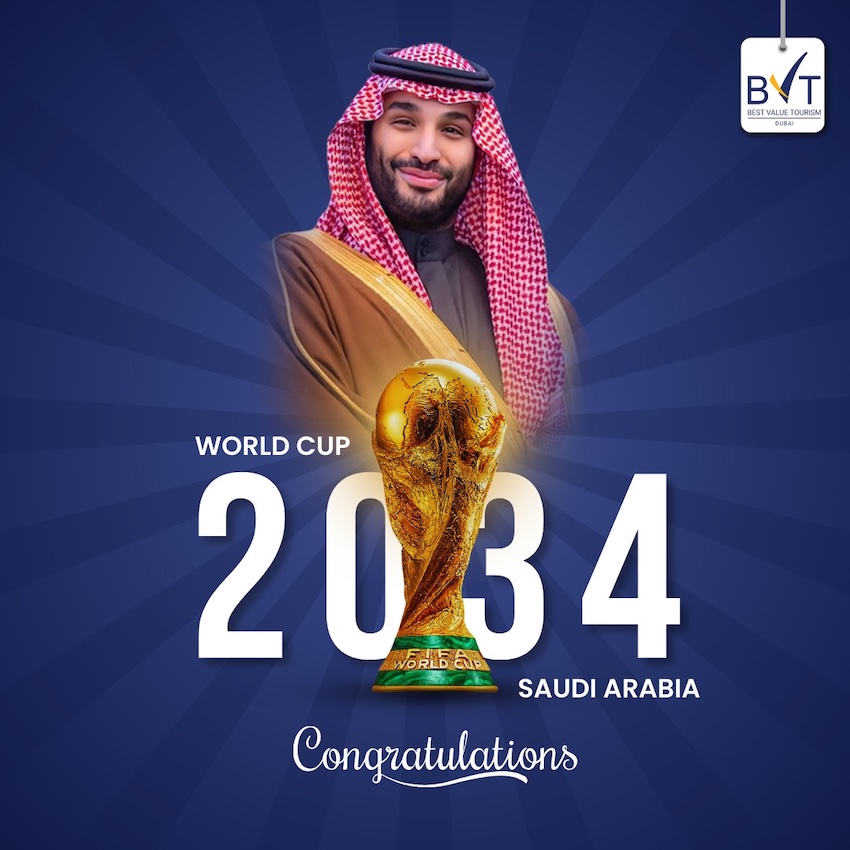
Saudi Arabia’s transformation has been characterized by a comprehensive approach to modernization and reform. What major achievements are You proud of and what are the current challenges facing Your society?

– The wise leadership – may God support it – has mobilized all resources to benefit the nation, its citizens, and residents through various programs and projects, thereby opening up vast opportunities for Saudi talents, and enabling them to fulfil their aspirations. It has continued to work diligently on the Quality of Life Program, launched by the Kingdom’s Vision 2030, to improve the quality of life of citizens and residents and increase their interaction with their community, as it has created more vibrant options that enhance positive lifestyles. Key achievements include:
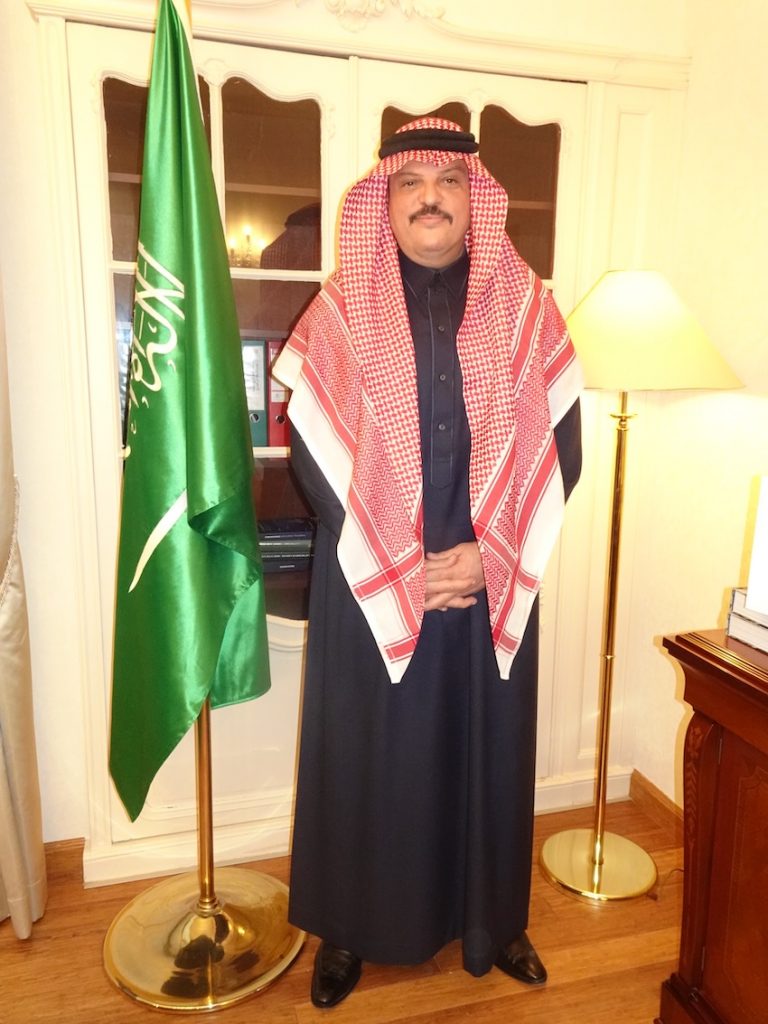
Economic Growth: Saudi Arabia has worked to attract major investors based on the strength of its economic base, as it is among the world’s 20 largest economies, and is an active member of the ‘G20’. It has also been keen to improve the investment environment to increase its attractiveness to investors, and has presented a number of giant investment initiatives under the umbrella of the Public Investment Fund, and leading institutions and companies.
Humanitarian Efforts: Sensing its humanitarian role towards the world and inspired by its mission to preserve human dignity based on the teachings of the true Islamic religion, the Kingdom has devoted great attention to relieving the distressed and helping the needy, preserving human life, dignity and health, and extending a helping hand and providing support, giving and assistance to the individuals and brotherly and friendly countries through its relief institutions and charitable platforms.
Scientific Advancements: In a milestone achievement, Saudi Arabia sent two astronauts to the International Space Station as part of its astronaut program to conduct 11 ground-breaking scientific research experiments in microgravity, the results of which will enhance Saudi Arabia’s global position in space exploration and serve humanity, and underscore the global impact of Saudi research centres in this domain, in addition to three educational awareness experiments. Moreover, the Saudi Science and Engineering Team won 23 grand prizes and 27 grand and special prizes at the Regeneron International Science and Engineering Fair (ISEF 2023), an unprecedented achievement.
Healthcare Transformation: In 2024, health services in the Kingdom achieved a qualitative leap in terms of quantity and quality at the preventive, therapeutic, diagnostic and rehabilitative levels. Vision 2030’s healthcare program aims to restructure the health sector into a comprehensive and efficient system that focuses on individual and community well-being.
Sports Development: The sports sector has undergone a ground-breaking change. H.R.H. Prince Mohammed bin Salman bin Abdulaziz Al Saud, Crown Prince and Prime Minister – may God protect him, launched the sports clubs’ investment and privatization project to align with Vision 2030’s objectives of creating a dynamic sports sector by stimulating and empowering the private sector to contribute to the development of the sports sector to achieve the desired excellence for national teams, sports clubs and athletes.
In order to achieve one of the Kingdom’s Vision 2030 goals of continuously training sports cadres, international football stars were attracted to Saudi clubs this year, making the Saudi League one of the most important sports competitions followed globally.
Can You explain the shifts in foreign policy that contribute to the development of the Kingdom’s role on the global stage, particularly its role as a mediator in conflicts by maintaining balanced relations with opposing parties?
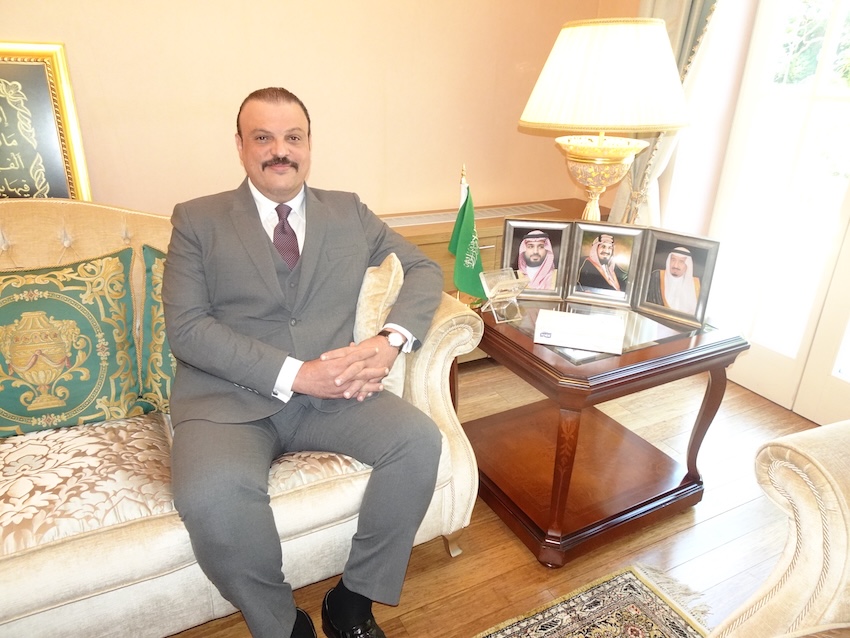
– Year after year, the Kingdom of Saudi Arabia continues to achieve accomplishments in various fields at all levels, becoming a visible reality manifested in growth, prosperity, well-being and developments, resulting from the wise decisions and guidance of the Custodian of the Two Holy Mosques, King Salman bin Abdulaziz Al Saud, and His Royal Highness Prince Mohammed bin Salman bin Abdulaziz, Crown Prince and Prime Minister – may God protect them, and in line with an ambitious vision that touches the sky and makes the country one of the world’s leading countries, thus placing Saudi Arabia at the centre of global attention. The Kingdom has become a peacemaker recognized in every forum. Through its unique international relations with all parties, it has been able to make decisions and propose initiatives that contributed to significant steps in combating and defeating terrorism, promoted the culture of peace, tolerance and dialogue among peoples, and brought together different viewpoints to achieve regional and global stability. This is rooted in its commitment to the teachings of Islam and the United Nations Charter, as well as its continuous support for the principles of international cooperation aimed at maintaining international peace and security through respect for good neighbourliness, non-interference in internal affairs, peaceful conflict resolution, and not resorting to force or threatening to use it. The Kingdom consistently calls for the need to “return to the voice of reason and wisdom, and activate channels of dialogue and negotiation, and peaceful solutions to stop fighting, protect civilians, and provide opportunities for peace, security, and prosperity for all”.
Could You provide details on the Saudi Green Initiative, a project affirming Your country’s commitment to sustainability, indicating a forward-looking approach to national development?
– On 27 March 2021, His Royal Highness Prince Mohammed bin Salman, Crown Prince and Prime Minister – may God protect him – launched two initiatives:
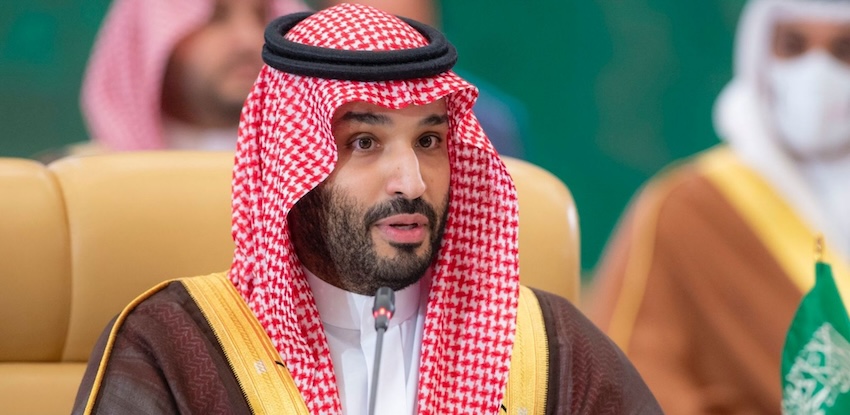
the “Saudi Green Initiative”, which aims to unify sustainability efforts and accelerate the pace of climate action in the Kingdom;

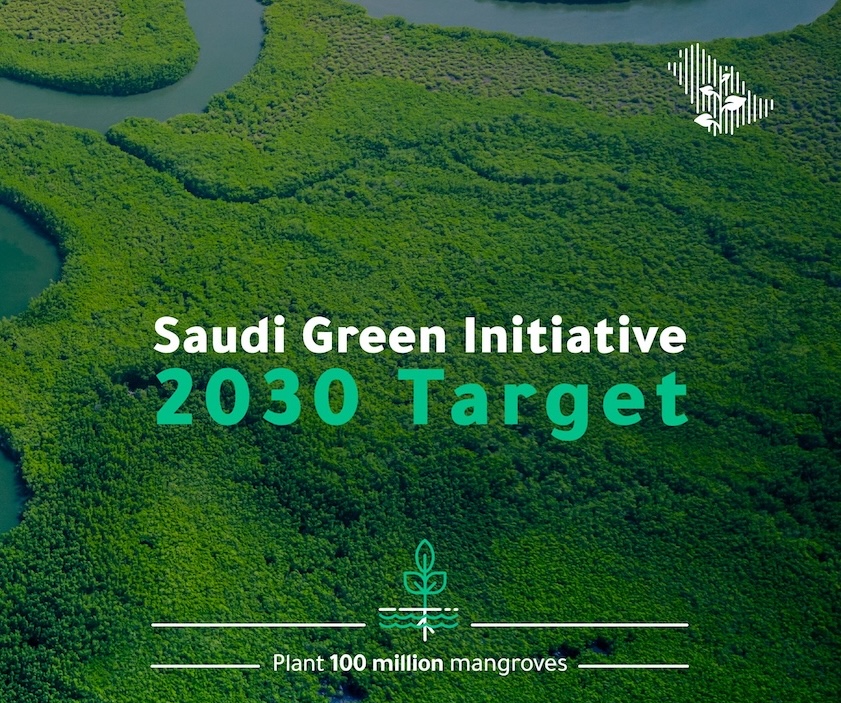
and the “Middle East Green Initiative”, which seeks to contribute to efforts to combat climate change by increasing vegetation cover in Middle Eastern countries, reducing carbon emissions, combating pollution, and protecting marine life.
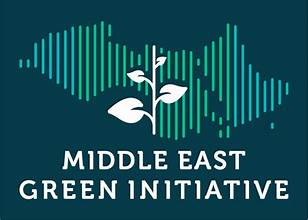
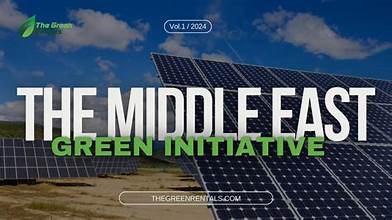
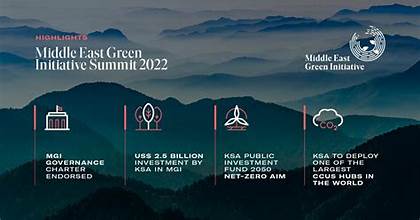
In addition, according to a decision by the Council of Ministers, 27 March has become the annual official day of the “Saudi Green Initiative”, embodying the Kingdom’s commitment to implementing the principles of the initiative approved on the same day.
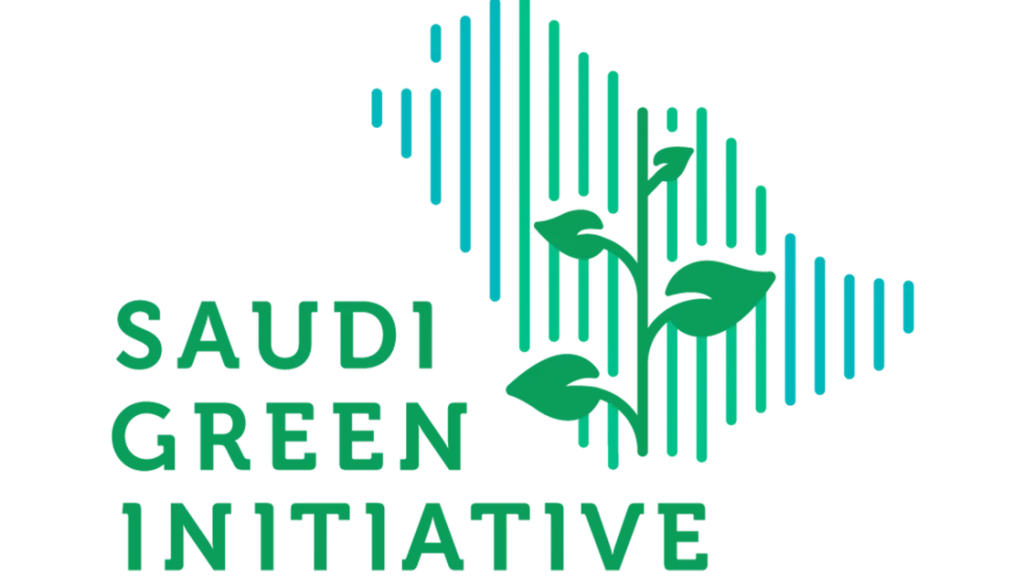
The Saudi Green Initiative supports the Kingdom’s ambition to achieve net-zero emissions by 2060 through adopting the carbon circular economy model and works to accelerate the Kingdom’s transition to a green economy. This initiative is the largest of its kind in the region and has three ambitious goals: reducing carbon emissions by 278 million tons annually by 2030; planting 10 billion trees across the Kingdom in the coming decades; and protecting 30% of the Kingdom’s terrestrial and marine areas by 2030, thus improving the quality of life and protecting the environment for future generations in Saudi Arabia. It also seeks to achieve sustainability goals in the Kingdom by enhancing the green economy, with over 80 initiatives launched, representing a significant investment worth more than 705 billion Riyals (188 billion USD), and seeks to accelerate the green transition and play a leading global role in applying the carbon circular economy model.
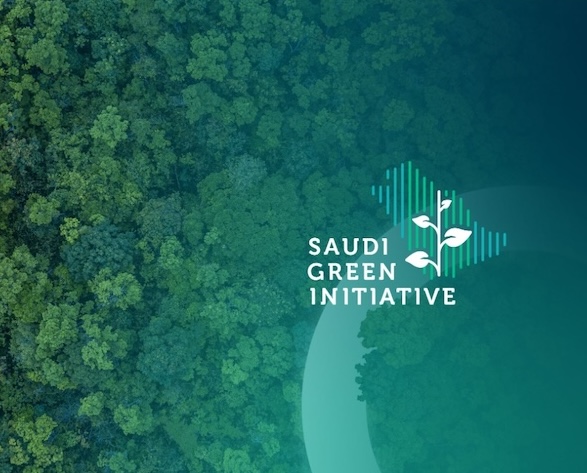
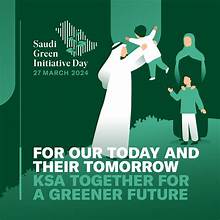
The Saudi Green Initiative has worked to restore and protect ecological and natural systems and support the flourishing of plant and animal species, thereby contributing to enhancing the beauty of nature across the Kingdom. Efforts are also underway to implement five initiatives that will contribute to increasing the proportion of protected terrestrial areas to over 21% and marine protected areas to over 26% of the Kingdom’s total area by 2030.
Saudi Arabia is building a new city called The Line in NEOM. Could You please tell us about this exceptional urban life project, which is the first of its kind in the world?
– The Line project is part of Saudi Arabia’s Vision 2030, and was announced in January 2021 by HRH Prince Mohammed bin Salman, Crown Prince and Prime Minister – may God protect him. It is a sustainable city project extending over 170 kilometres in the NEOM region of north-western Saudi Arabia, characterized by diverse terrains of mountains, beaches and deserts. This project reflects the Kingdom’s commitment to achieving a sustainable and technologically advanced future and is part of efforts to transform the Saudi economy and radically modernize infrastructure.
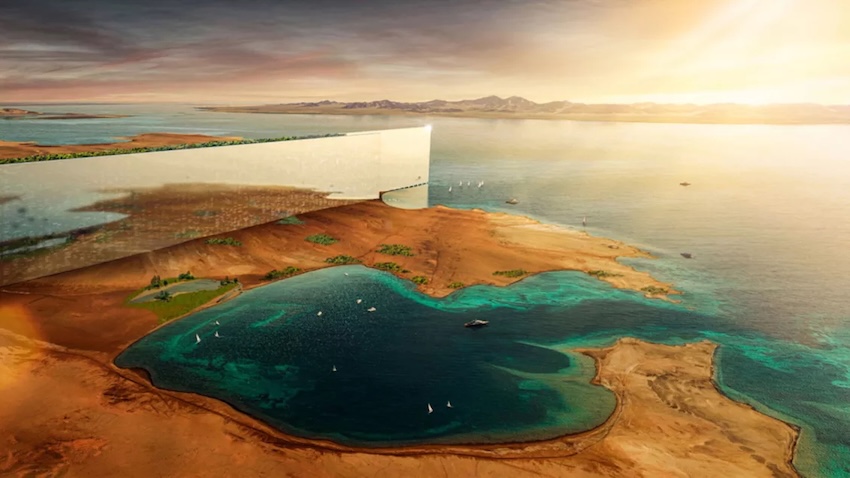
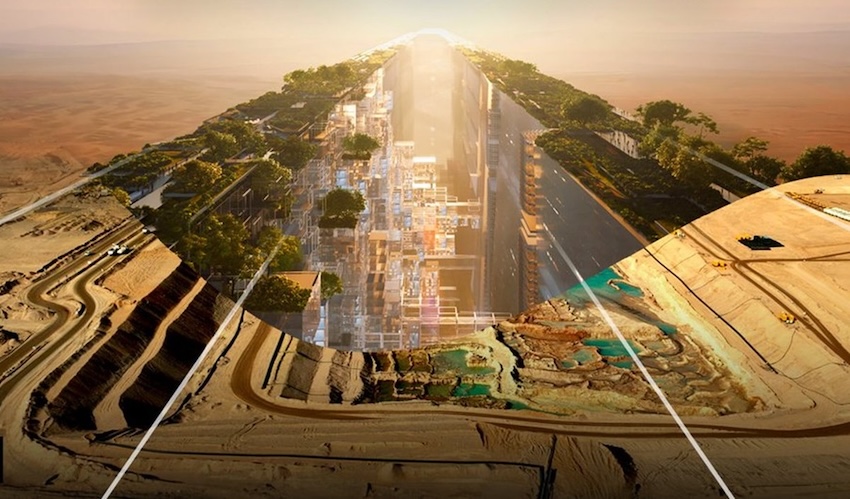
The city will be car-free and will not have traditional streets, but will focus on high-tech and integrated transportation. The design aims to preserve nature, with the city being built in a straight line 200 meters wide and 500 meters high. It will rely on 100% renewable energy, with smart infrastructure based on artificial intelligence to provide services sustainably.
The city will focus on innovative technologies to reduce carbon footprint and pollution. The project is expected to create around 380,000 new jobs by 2030 and contribute up to $48 billion to Saudi Arabia’s GDP annually. The city aims to provide high-quality living for its residents, with a focus on quick access to essential services like healthcare, education, and entertainment within a five-minute walk, along with high-speed transportation that enables travel from one point of the city to another in just 20 minutes. https://www.neom.com/en-us/regions/theline

Your Excellency, please tell us about Your professional and diplomatic journey. How did You become a diplomat? What are the most challenging and rewarding aspects of diplomatic service?
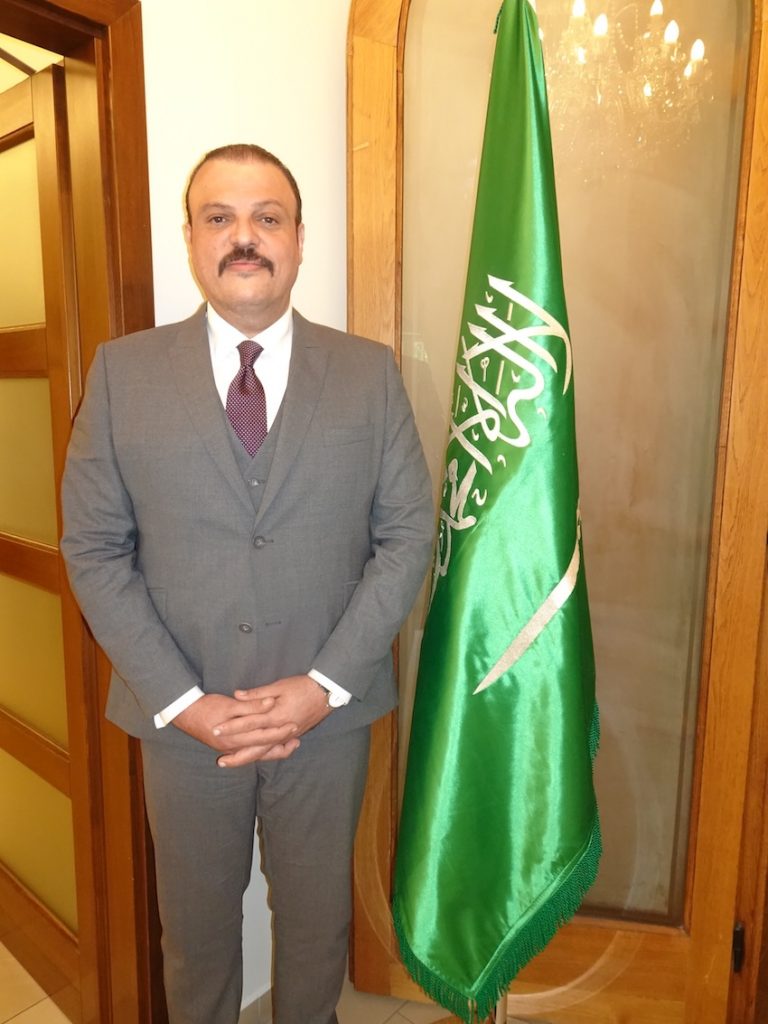
– I obtained a Bachelor’s degree in Political Science from King Saud University in Riyadh, where I learned the fundamentals of political science and international diplomacy. During my studies, I developed a strong interest in understanding how international relations impact the global stage. I continued my postgraduate studies in the United States, where I pursued a Master’s degree in Political Science, as well as a Master’s in International Relations, in addition to a specialized program in Security Studies at Syracuse University. My research focused on international relations, which gave me the opportunity to delve deeply into the study of global challenges affecting the world today.
I began my diplomatic career as a young diplomat in the Saudi Ministry of Foreign Affairs, which has been a leading institution in diplomacy for nearly 25 years. Over the years, I have participated in numerous international conferences, where I presented insights and strategies aimed at enhancing international cooperation and global peace.
In 2024, I was appointed Ambassador of the Kingdom of Saudi Arabia to Hungary. This responsibility is a great honour for me and an opportunity to strengthen bilateral relations between our two countries in various fields, including politics, economy and culture. I am committed to continuing my work to improve international relations and find solutions to common challenges. As for the most challenging and rewarding aspects of diplomatic service, diplomats work in volatile political environments that can change rapidly, requiring them to be prepared for political pressures and international tensions.
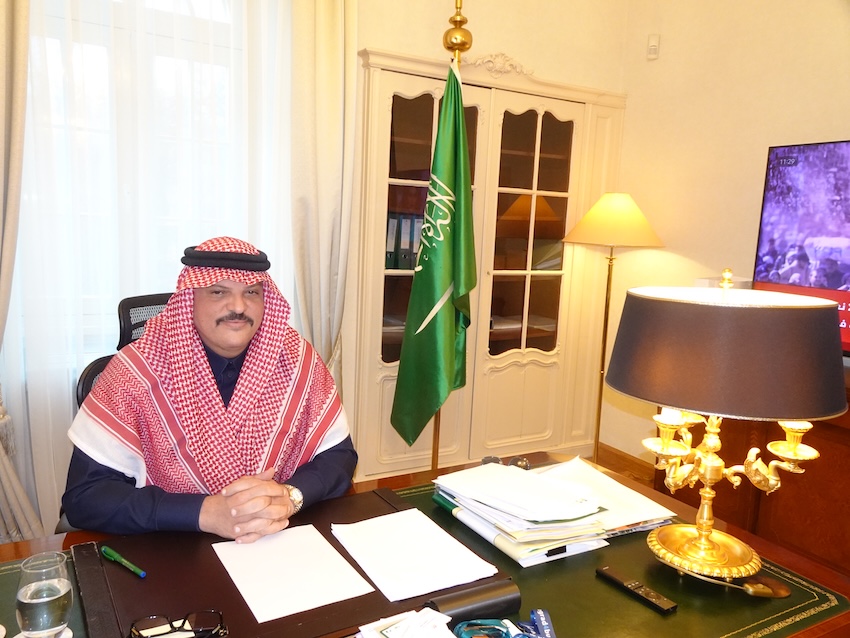
One of the most challenging aspects of diplomatic service is handling international crises, which can be complex and require quick and sensitive responses. This demands high negotiation skills and the ability to adapt to rapidly changing circumstances. Furthermore, diplomats deal with different cultures and customs, requiring them to have a deep understanding of and respect for cultural diversity. This can pose a significant challenge in terms of effective communication and understanding people from different cultural backgrounds. Diplomats must also balance protecting their country’s interests while cooperating with other countries to achieve international stability.
One of the most rewarding aspects of diplomatic work is the ability to enhance relations between countries and contribute to peacebuilding and fostering international cooperation. Additionally, the opportunity to learn about new cultures and broaden one’s cultural and personal understanding adds to the richness of knowledge. From my personal perspective, being a diplomat or ambassador for your country means not only visiting the most beautiful places, but also communicating and dialogue with society, respecting cultural diversity and striving to represent your country in a proper manner, because you are a bridge of social and cultural communication between two societies.
Congratulations, Saudi Arabia has won the bid to host 2030 World Expo in Riyadh, becoming the second city in the Middle East to host this monumental international event after Dubai in 2020. Could You give us an idea about the ongoing preparations for Expo 2030 Riyadh?
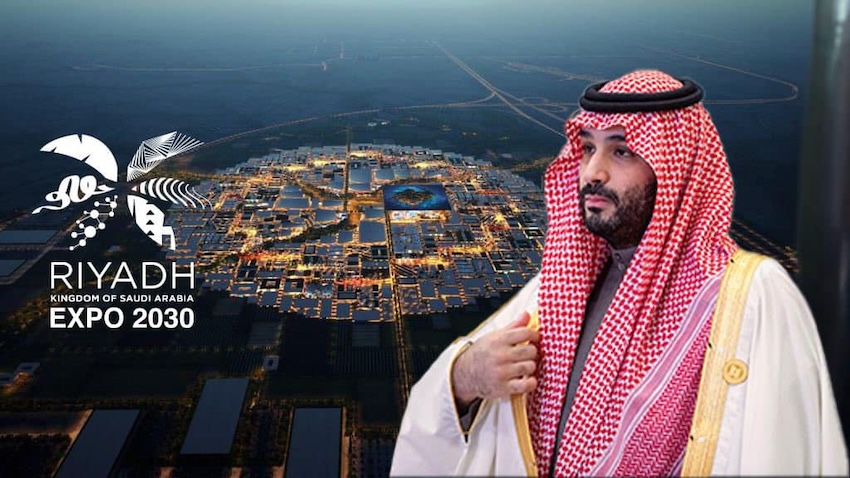
– His Royal Highness Prince Mohammed bin Salman, Crown Prince and Prime Minister – may God protect him – affirmed that hosting Expo 2030 coincides with the achievement of the objectives of Saudi Vision 2030, making it an opportunity to showcase the progress and transformation that the Kingdom has achieved. Since the announcement of Riyadh’s selection as the host city for Expo 2030 under the theme “The Era of Change: Together for a Foresighted Tomorrow”, we have been dedicating our efforts with full determination to deliver an unprecedented and exceptional version of the Expo.

Saudi Vision 2030 is a roadmap for building a vibrant society, a thriving economy and an ambitious country. Expo Riyadh 2030 will be an ideal opportunity for the Kingdom of Saudi Arabia to share its story of unprecedented national transformation with other countries and peoples of the world. The Expo will serve as a unique platform to display the most prominent innovations and cutting-edge technologies, and their contributions to overcoming global challenges in various fields.
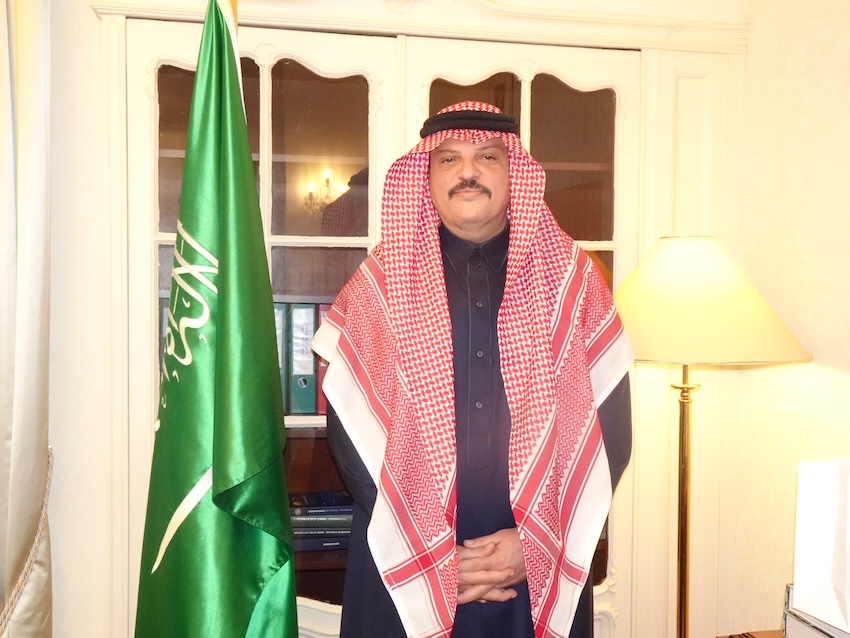
Together, we aim to shape Riyadh Expo 2030 under the principle of “One Nation, One Pavilion”, ensuring equality among countries and institutions through Expo C3 (Cooperative Change Corner) initiatives, which will help supporting outstanding projects, providing resources and support, and expanding their scope to promote sustainable development, and jointly finding solutions to common challenges leading to a safer and more prosperous future for humanity.
Expo 2030 will provide participants and visitors with an extraordinary global experience. Expo Riyadh 2030 will be held in northern Riyadh, approximately 5-10 minutes’ drive from King Khalid International Airport, with 246 expected participants from countries and global organizations, and non-official participants, covering a total area of more than 6 million square meters.
The proposed master plan for the Expo Riyadh 2030 site features a unique design as a futuristic city around an ancient valley, combining the concepts of “alwaha” (the oasis) and “alrawda” (the garden) from which the name “alriyad” (Riyadh) is derived. This reflects the Kingdom’s vision of pioneering a sustainable future for the cities and their societies. The Expo will offer a cultural environment that creates distinctive memories linked to imagination, science, and technology, allowing visitors to experience diverse ideas for the future and live innovative approaches to creating a better tomorrow.
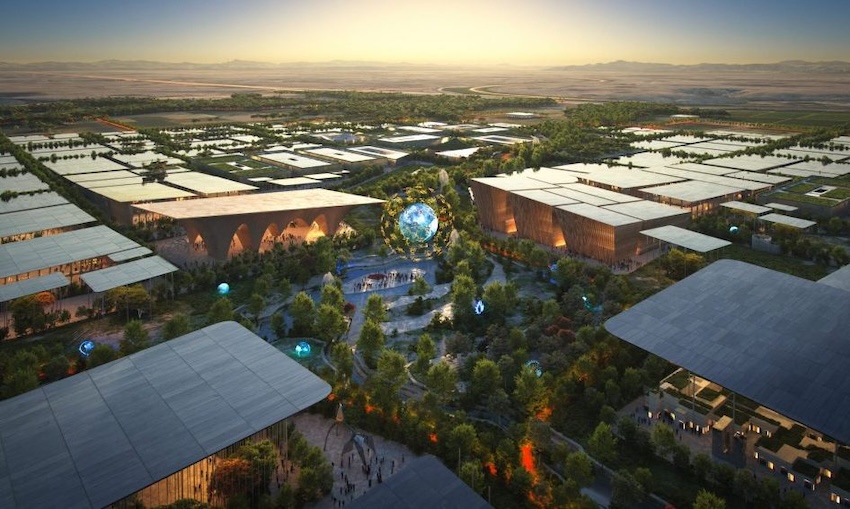
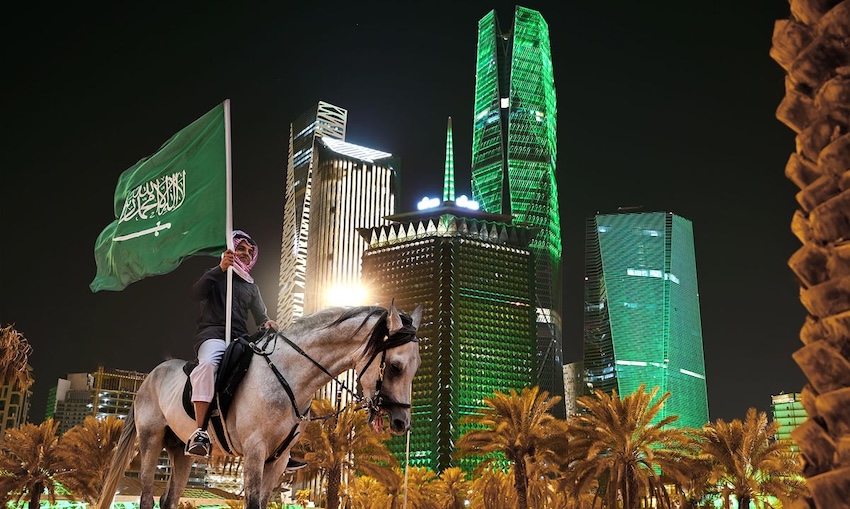
On a personal level, how have You adapted to living and working here since Your arrival? How do You spend Your free time after busy working days? Do You have preferred activities? What do You miss most about Your home country?
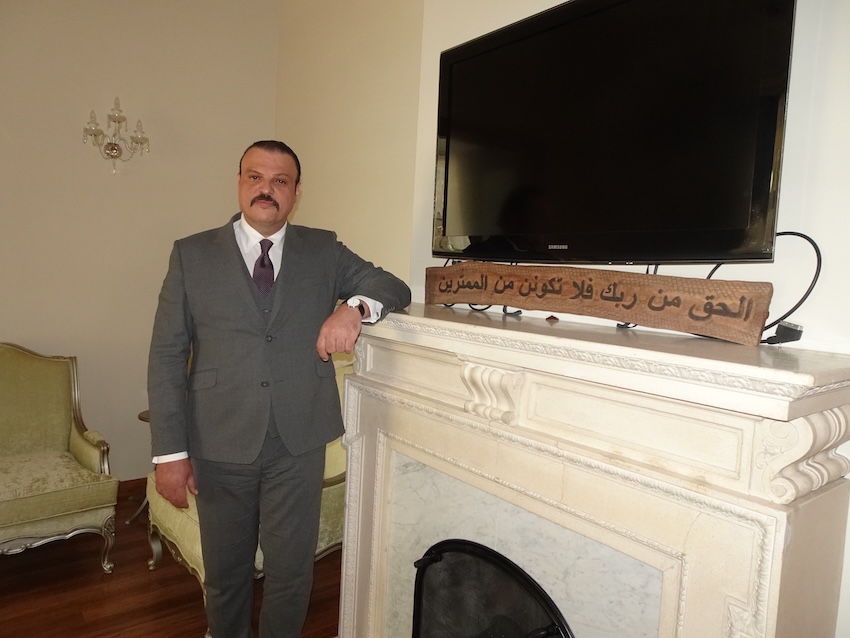
– Since arriving in Budapest, I have found myself on an exciting journey that combines new challenges with wonderful opportunities. This city, with its rich history and beauty, has a special charm that attracts visitors from the very first moment. It has a unique balance between tradition and modernity, making it an ideal place to live and work. The lifestyle in Budapest is comfortable and enjoyable. Budapest is a city that embraces cultural and historical diversity, making it an inspiring place to live and work. I am grateful for all the experiences and opportunities I’ve had since my arrival, and I look forward to further progress and cooperation during my stay here.
In my free time, I learn Hungarian, which, although challenging at first, has allowed me to learn some basic phrases that help with daily communication and enhance my interaction with the local society. I also dedicate some time to reading, be it books about Hungarian history and culture, or world literature, which help me relax and expand my knowledge. Additionally, I attend music concerts, theatre performances, and I visit museums and art galleries. I also enjoy walking the beautiful streets of Budapest and exploring the historical districts, as the city is filled with stunning landmarks and unique architecture.
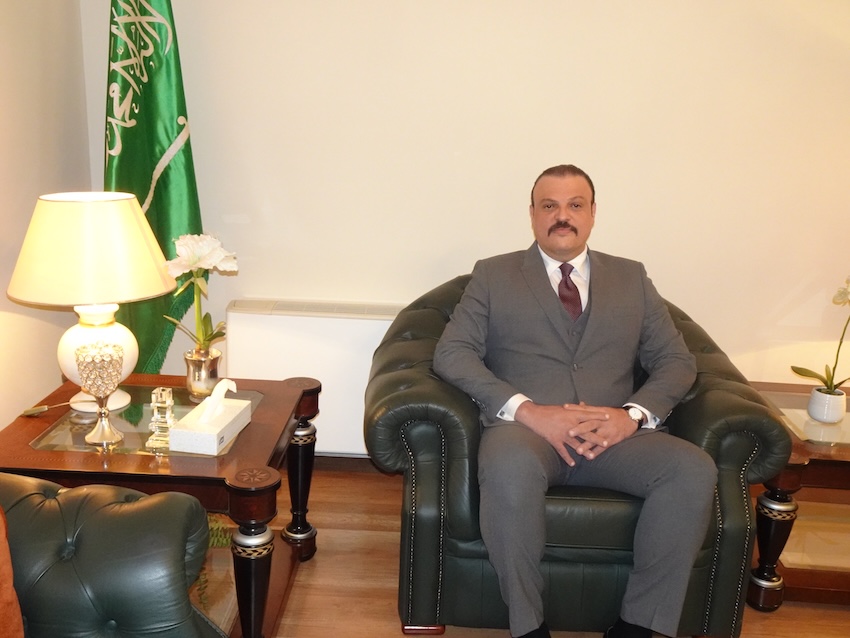
As for what I miss most about my home country, it’s spending time with my family and close friends. Family gatherings and social events always hold a special place in my heart. Although I enjoy a wonderful experience in Budapest, my homeland will always be in my heart, and the longing for it is always present. The times I spend in my country give me a strong sense of inspiration and energy.
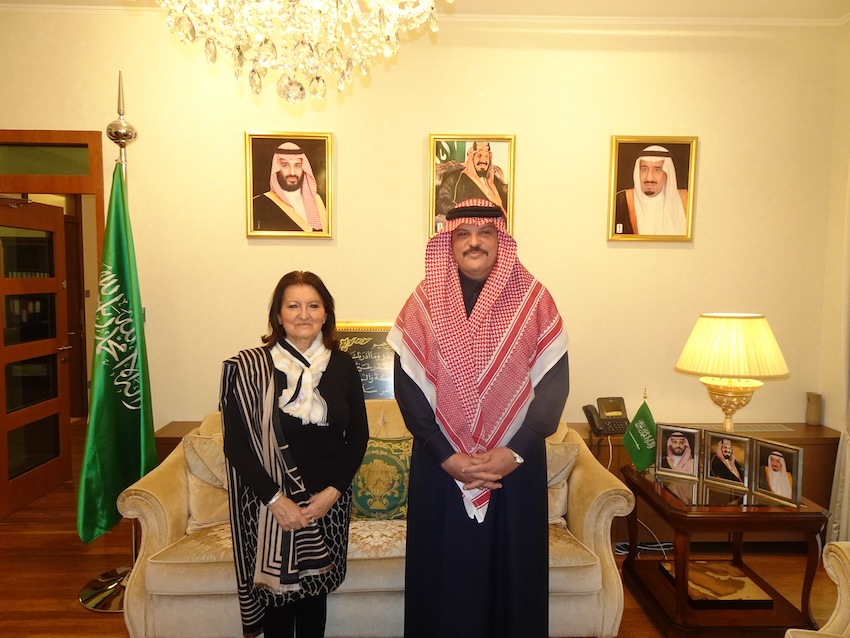
How do You see the future in today’s turbulent global landscape? What message would You like to share with the world about Your country?
– Looking to the future in today’s turbulent global landscape requires an optimistic yet realistic vision, based on careful analysis of the challenges and opportunities. Diplomatic channels remain a powerful tool for promoting peace and stability in the world through open and constructive dialogue, allowing us to reduce conflict and build stronger, more sustainable relationships between countries. I believe that international cooperation will be crucial in addressing current global challenges. Despite the difficulties, joint efforts and mutual understanding between countries can lead to innovative and sustainable solutions. Furthermore, technological advancements open new horizons for development and prosperity. By leveraging technological innovations, we can address complex issues such as climate change, public health and food security.
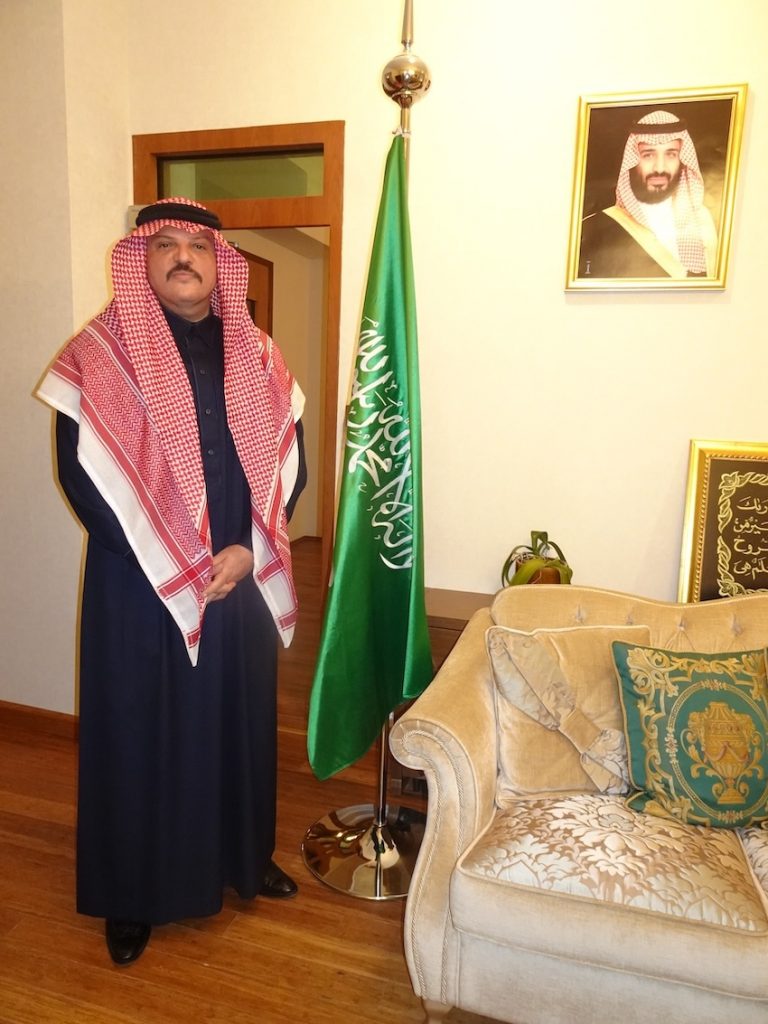
Despite the complicated challenges we face today, I am optimistic about a future filled with peace and prosperity through collective action and a commitment to shared human values. Together, we can overcome obstacles and build a more just and sustainable world.
In conclusion, I would like to say: my country is currently experiencing an extraordinary transformation that blends tradition and modernity, opening new horizons for the future thanks to Vision 2030, launched by HRH Prince Mohammed bin Salman, Crown Prince and Prime Minister – may God protect him. This ambitious vision charts a path to economic diversification, empowering society and enhancing the Kingdom’s global standing. Through this vision, my country is heading towards a future filled with economic and developmental opportunities, with a focus on innovation, technology, and sustainability. Saudi Arabia has become a hub for culture and arts, hosting global festivals and events that foster cultural understanding and openness to the world.
Saudi Arabia is not limited to oil; it thrives with the talents of its people and ambitious youth who contribute to building a brighter future. Education, training, and human development are at the heart of this journey, focusing on creating an environment that allows everyone to reach their full potential. I invite the world to discover my country, a land of opportunities and potential, where dreams can become reality.
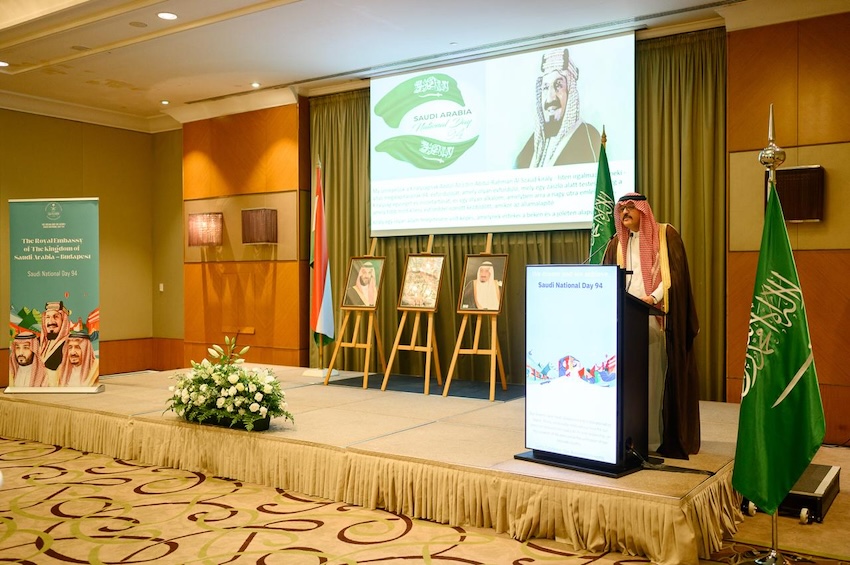
Source: Embassy of the Kingdom of Saudi Arabia in Budapest
Photos by DPA

